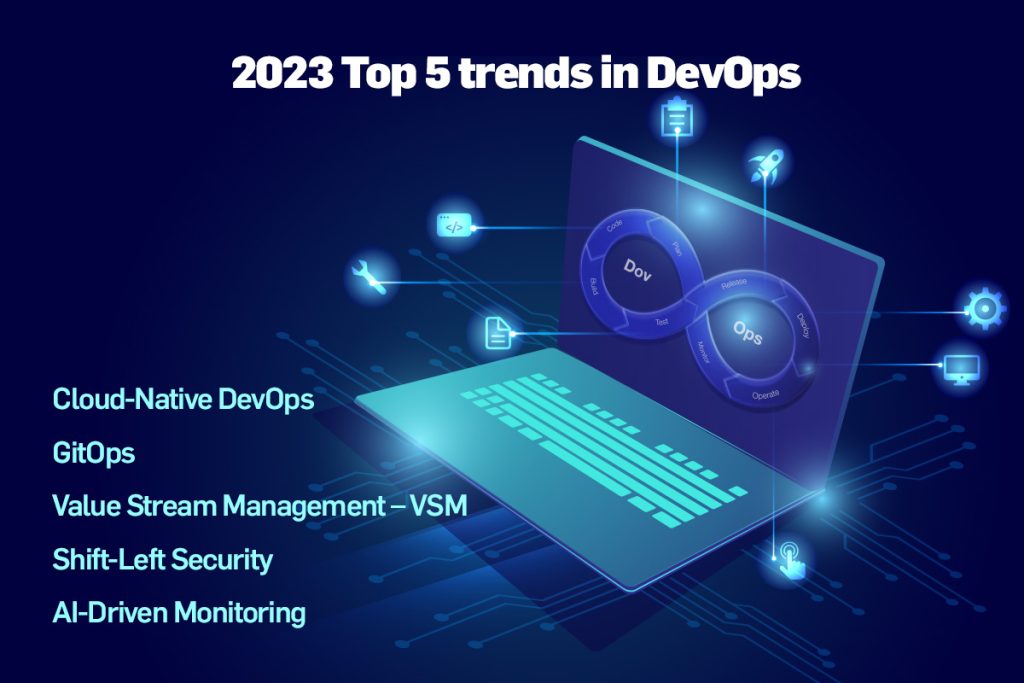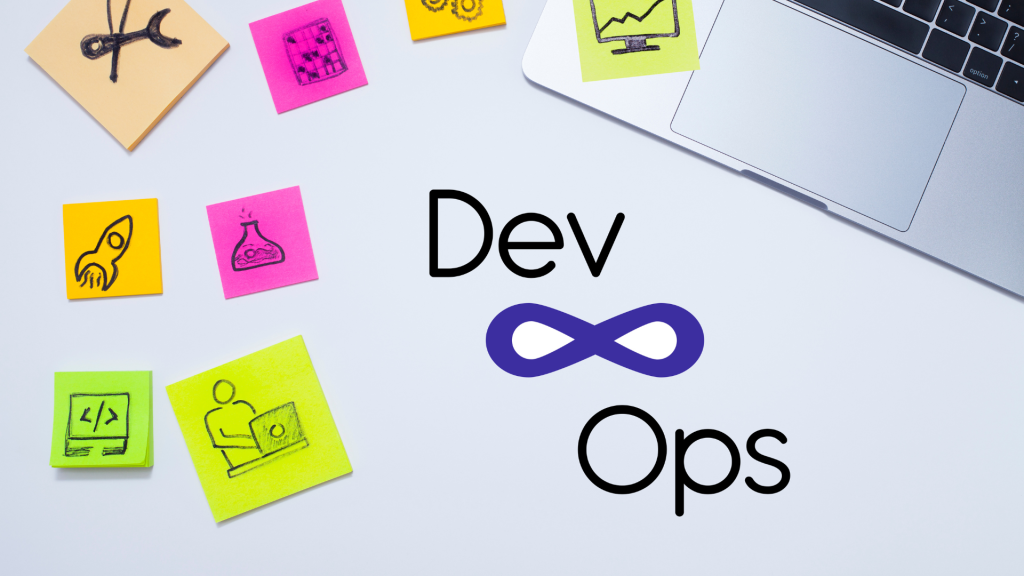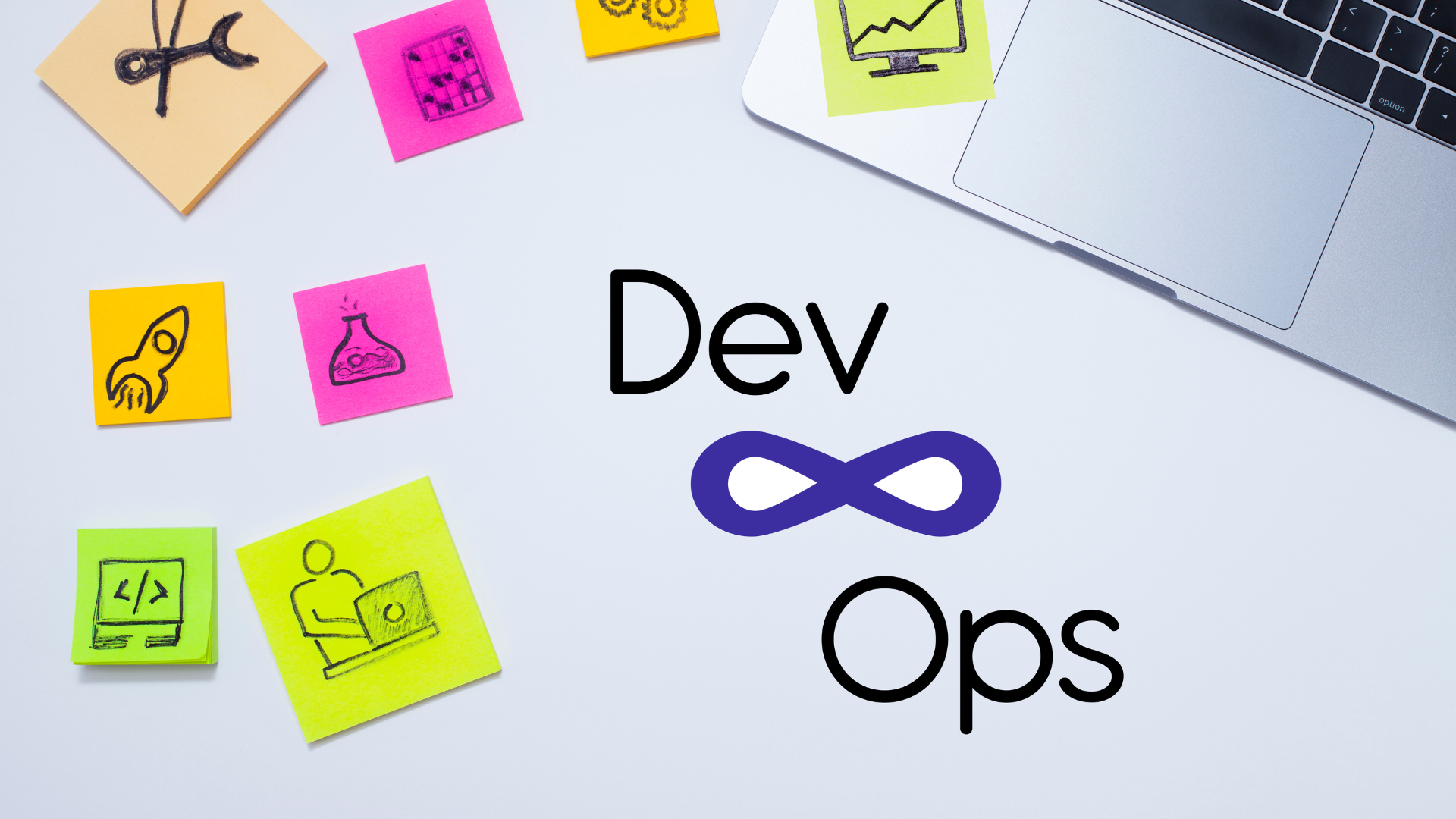In today’s increasingly dynamic digital landscape, organizations are constantly striving to stay competitive by embracing digitization. One approach that has proven to be highly effective is adopting DevOps principles. DevOps, a combination of development and operations, provides a set of practices that facilitate fluid collaboration, automation, and rapid delivery of software solutions. Next, we explore the four DevOps principles that serve as a guiding force for the success of organizations’ digitization efforts.
Cloud-Native DevOps
Cloud-Native DevOps will have a significant impact in 2023. By adopting cloud-native technologies such as containers and serverless computing, organizations can benefit from the scalability, flexibility and cost efficiency offered by cloud platforms. Cloud-Native DevOps enables faster development cycles, easier scalability, and better resource utilization. By adopting this trend, organizations can optimize software delivery and take advantage of the benefits of cloud-native architectures.
GitOps
GitOps is an emerging trend that combines the power of version control systems such as Git with DevOps principles. By managing infrastructure and application delivery declaratively through Git repositories, organizations can ensure consistency, traceability, and reproducibility in their software delivery process. GitOps simplifies deployments, reduces errors, and provides a solid foundation for continuous delivery deployment. Adopting GitOps in 2023 will improve the efficiency and reliability of DevOps practices.
Value Stream Management (VSM)
Value Stream Management is gaining popularity as a crucial trend in DevOps for 2023. VSM focuses on visualizing, analyzing, and optimizing the complete software delivery flow. By mapping the entire process from idea to implementation and monitoring, organizations can identify pain points, optimize workflows, and improve collaboration. VSM enables faster feedback loops, continuous improvement and ultimately reduced time to market. Implementing VSM in 2023 will bring efficiency and effectiveness across the entire software delivery lifecycle.

Shift-Left Security
In 2023, the importance of embedding security early in the software development cycle cannot be underestimated. The trend of embedded security in the development process, also known as “shift-left security”, emphasizes the prioritization of security from the beginning. DevOps teams will include security testing, vulnerability scanning and code analysis in the early stages of development. By proactively addressing security issues, organizations can minimize risks, reduce vulnerabilities, and prevent costly security incursions. Shift-left security is a critical trend for ensuring robust protection and maintaining customer trust.
Observability and AI-Driven Monitoring
As systems become increasingly complex, observability and AI-driven monitoring will also play a key role in 2023. Observability enables organizations to obtain comprehensive information about the internal state of systems, facilitating efficient troubleshooting and performance optimization. AI-based monitoring uses machine learning algorithms for error detection, failure prediction and remediation automation. By adopting AI-driven observability and monitoring, organizations can improve system reliability, manage incidents efficiently, and optimize overall performance.
The year 2023 will bring significant trends in DevOps that have the potential to transform software delivery processes. Embracing these trends will enable organizations to accelerate software development, ensure reliability, strengthen security practices, and drive innovation. Organizations must keep pace with these trends and leverage their benefits to thrive in this evolving DevOps segment.
A complete ecosystem of software solutions can significantly assist organizations in implementing and optimizing DevOps practices by providing seamless integration, efficient workflows, and ongoing technical advice.
Learn more from one of htss consultants.


































